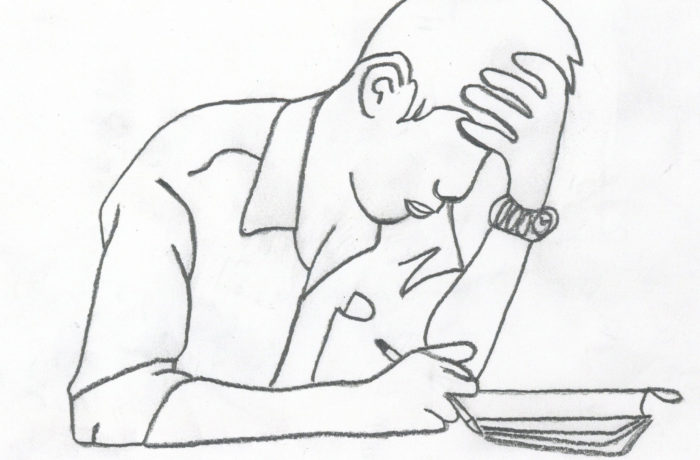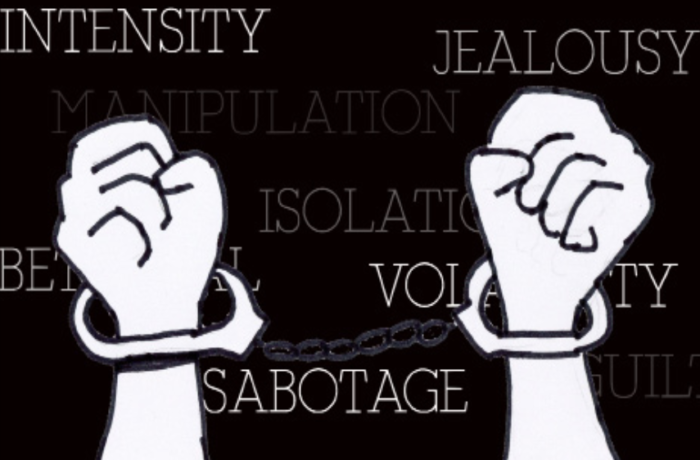
Shannon McQueen, ’16, carries her resolutions for 2016 as she goes about her day.
A month ago, you might have stepped into the fitness center in Dion, or the gym in Tarrant, and found that every machine was in use and the room packed, hot, sticky, maybe even smellier than usual. You wondered–why are there so many people here?
Then realization dawned: this is the season of New Year’s Resolutions, hence the student body, and perhaps most of America, was in a full fitness swing. The potential to change your life was in the air. For a week or two, the gym was more crowded, the salad bar in Alliot Dining hall may have been hit a little harder than usual, but life soon went back to normal.
What was the point of it all? The influx of students hitting the gym and eating vegetables is an indicator of a change, but not necessarily a permanent one. People often make resolutions at the cusp of a new year, but how many keep them?
“It depends on where someone is at,” said Allison Graham, a practicing psychotherapist in Burlington. “Some people have a well established day-to-day life. Their pragmatic world is really set up and they want to work on being less afraid in the world or more patient or things like that, tracking those can be a little more difficult, but there are some people who are in a major life change, and that would have a totally different set of goals than someone who was working on patience.”
The question is: Can a resolution realistically last past Valentine’s Day?
“It depends on how much work someone wants to do,”Graham said. “When people are ready to be who they are, love what they love, and do what they want to do in the world, I see great success. When people are afraid to make changes they kind of circle back until they’re ready to get out of the circle.”
Shannon McQueen, ‘16, is no stranger to making resolutions. “I make resolutions every year and I save them,” McQueen said. “Some of them are things I struggle with. I think it’s important as far as putting yourself outside of your comfort zone and just growing a little. And then bad habits I want to kick, like coffee. Excessive coffee.” McQueen laughs.
Specific goals vary from person to person, and what works for some in achieving those goals may not work for others.
“Everyone approaches their goals differently,” said Cory Warren, ’16, “ I feel very confined when I have parameters that I’m just enforcing on my own, and I rarely follow through with them, but some people like to have that structure.”
Other people need structure. “In the past I’ve made resolutions that are too big,” said Samantha Chinigo, ’18, “I’ve made vague ones, like ‘I’m going to start eating right’ so I got specific this year.”
For Chinigo, 2016 has very defined goals. “[I] decided to cut soda,” said Chinigo, “I said I was going to go to the library more too.”
What else have students resolved for the year 2016?
“The big [resolutions] I made were to read and to write more,” said Warren.
McQueen made a list of six resolutions for the year. “My resolutions were to be in the present moment more,” McQueen said. “To show those that love me that I love them back, to be gentle with myself because I usually have fairly high standards for myself, to drink more water, less coffee, which is hard (laughs), to be more open to falling in love, and to go on 6 new adventures that scare me.”
Staying on track with resolutions, however,can be a struggle.
Graham suggests looking at a goal in a positive mindset. Concentrating on drinking less soda puts the focus on the negative, but thinking of your goal as ‘being more healthy’ is more positive and will alter your mindset in a positive way.
“It’s sort of a way of helping the mind,” Graham said. “Literally, the pathways in the mind will gear up towards whatever you’re saying. Working with blocks and challenges is more psychological.”
“It’s tough,” said McQueen. “Being present in this environment of school where so much is focused, especially right now, on graduation…and on assignments coming up later that week, that’s really hard for me. If part of my resolution is to be more gentle with myself then I can’t beat myself up for not doing well on my resolutions.”
McQueen keeps a copy of her resolutions for the year with her to remind herself of her goals. Chinigo hung a sign on her bedroom door to remind herself to ‘drink more water’ and avoid soda.Warren writes in a journal and tries to balance pleasure reading and homework, a blurry line for the English major, and checks his progress with a calendar.
Each one has a different goal, a different approach, a different level of success, and a different vision of 2016.
Graham recommends getting support from others. Friends to encourage you and be by your side while you pursue your goal. She also advises having smaller mile markers, but everyone needs different things when it comes to achieving goals. “Structure helps some people,” Graham said. “Some people are over structured so its not black and white.”
For Warren, it’s all about perspective. “I think it has to do with just how we have conceptualized time,” said Warren. “Somehow January first is this big marker, a new beginning, that could be any day of the year but we’ve universally decided it’s going to be this day and from then on you can start afresh. When it comes around you have this pressure like ‘I really should be doing this, I really should be finding a way to improve’.”
Perhaps the problem is relying on one day. “Every day, every moment is an opportunity to do what you would want to do with your resolutions,” said Graham.“I encourage people to really focus on their choices in the moment Why wait for one time of year?”


